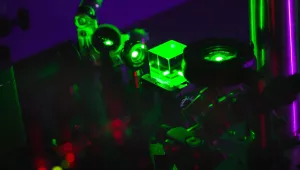
Frank Doyle
Frank Doyle is a professor of Engineering and the 14th provost of Brown University. As the University's chief academic officer and chief budget officer, Doyle works closely with the president to advance the University’s mission of teaching, research and service. The provost is responsible for ensuring academic excellence and sound budgetary practices across the full range of programs in academic departments, research centers, and interdisciplinary institutes. The provost also oversees the operations of the College, Graduate School, Warren Alpert Medical School, School of Public Health, School of Engineering and School of Professional Studies. As provost, Doyle’s priorities are to advance academic excellence, build community and ensure fiscal sustainability.
Prior to his role at Brown, Doyle served as the John A. Paulson Dean of the Harvard John A. Paulson School of Engineering and Applied Sciences (SEAS) at Harvard University, where he was also the John A. & Elizabeth S. Armstrong Professor. As dean, he established SEAS as the “connective tissue” of Harvard University, developing numerous joint programs with other Harvard schools, including new joint master’s degrees, new executive education programs and a new Ph.D. degree.
Aligned with Brown’s own commitment to diversity, equity and inclusion, Doyle was the architect of a vast array of diversity, equity, inclusion and belonging activities at Harvard’s engineering school, and championed DEIB efforts across the university, the City of Cambridge, and the national and global engineering communities.
Prior to serving as dean, Doyle was the Mellichamp Professor at UC Santa Barbara, where he was the Chair of the Department of Chemical Engineering, the Director of the UCSB/MIT/Caltech Institute for Collaborative Biotechnologies, and the Associate Dean for Research in the College of Engineering.
Doyle received a B.S.E. degree from Princeton, C.P.G.S. from Cambridge, and Ph.D. from Caltech, all in Chemical Engineering. He has been recognized as a Fellow of multiple professional organizations including: IEEE, IFAC, AIMBE, AIChE, IMABE and the AAAS. He was the President for the IEEE Control Systems Society in 2015 and was the Vice President and Chair of the Technical Board for the International Federation of Automatic Control from 2014 to 2017. In 2015, he received the Control Engineering Practice Award from AACC and in 2020, received the Industrial Achievement Award from IFAC; both for his role in the development of the artificial pancreas.
Doyle is an elected member of the National Academy of Medicine (2016), the National Academy of Inventors (2020), and the National Academy of Engineering (2021). His research interests are in systems biology, network science, modeling and analysis of circadian rhythms, and drug delivery for diabetes. In his spare time, he enjoys hiking with his family, racing sailboats, and is a certified soccer referee at the adult and collegiate levels.
-
Provost, Brown University








